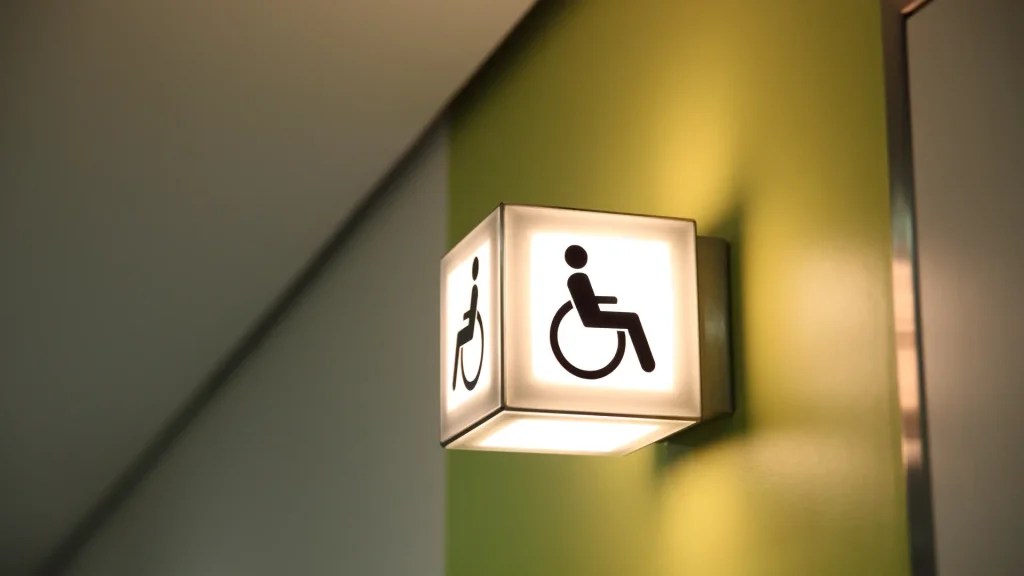In the United Kingdom, ensuring accessibility for individuals with disabilities is not just a matter of goodwill; it’s a legal requirement. Among the various facilities that must comply with accessibility standards, disabled toilets in commercial premises hold significant importance. These facilities are crucial for providing dignity, independence, and equal access to people with disabilities. Let’s delve into the laws and regulations governing disabled toilets in commercial premises across the UK.
Equality Act 2010
The cornerstone legislation addressing accessibility issues in the UK is the Equality Act 2010. Under this act, businesses and service providers are legally obligated to make reasonable adjustments to ensure that disabled people can access their services. This includes providing accessible toilets in commercial premises.
Building Regulations
Building Regulations in the UK outline specific requirements for accessible toilets in new constructions and major renovations. These regulations cover various aspects, including the dimensions of the toilet cubicle, grab rail installations, door openings, and fixtures such as sinks and hand dryers. Adhering to these regulations is crucial for obtaining building permits and ensuring compliance with accessibility standards.
Approved Document M
Approved Document M provides detailed guidance on how to comply with the accessibility requirements outlined in Building Regulations. It offers clear specifications for the design and construction of accessible toilets, including recommendations for features such as non-slip floors, contrasting colors for visual impairment, and appropriate signage.
British Standards
British Standards, particularly BS 8300, offer further guidance on designing and equipping accessible toilets to meet the needs of disabled individuals. This standard covers a wide range of factors, including layout, fixtures, fittings, and access provisions. Adhering to British Standards ensures that disabled toilets are designed and built to the highest standards of accessibility.
Specific Requirements
While there are general guidelines and regulations governing disabled toilets, certain industries may have specific requirements based on the nature of their business and the needs of their clientele. For example, in healthcare settings, disabled toilets may need additional features such as hoists or adult changing facilities to accommodate individuals with severe disabilities.
Enforcement and Penalties
Ensuring compliance with accessibility regulations is not just a matter of meeting legal requirements; it’s also about promoting inclusivity and equality. Failure to provide adequate facilities for disabled individuals can result in legal action, fines, and damage to reputation. Therefore, it’s essential for businesses to prioritise accessibility and invest in creating inclusive environments for all customers and employees.
Best Practices
In addition to meeting minimum legal requirements, businesses can adopt best practices to enhance the accessibility of their toilets further. This may include providing additional facilities such as emergency alarms, clear signage with Braille and tactile indicators, and regular maintenance to ensure that equipment remains in working order.
Consultation with Disabled Individuals
One of the most effective ways to ensure that disabled toilets meet the needs of their intended users is to consult with disabled individuals themselves. By seeking feedback and input from people with disabilities, businesses can gain valuable insights into the challenges they face and make informed decisions about toilet design and accessibility features.
Conclusion
Accessible toilets in commercial premises play a vital role in ensuring equality and inclusivity for people with disabilities. By adhering to relevant laws, regulations, and standards, businesses can create environments that are welcoming and accessible to all. It’s not just a legal obligation; it’s a moral imperative to ensure that disabled individuals can access essential facilities with dignity and independence.
In summary, compliance with accessibility regulations is not just about meeting legal requirements; it’s about fostering a culture of inclusivity and respect for people of all abilities. By prioritising accessibility in the design and construction of disabled toilets, businesses can demonstrate their commitment to equality and create environments that are accessible and welcoming to everyone.



